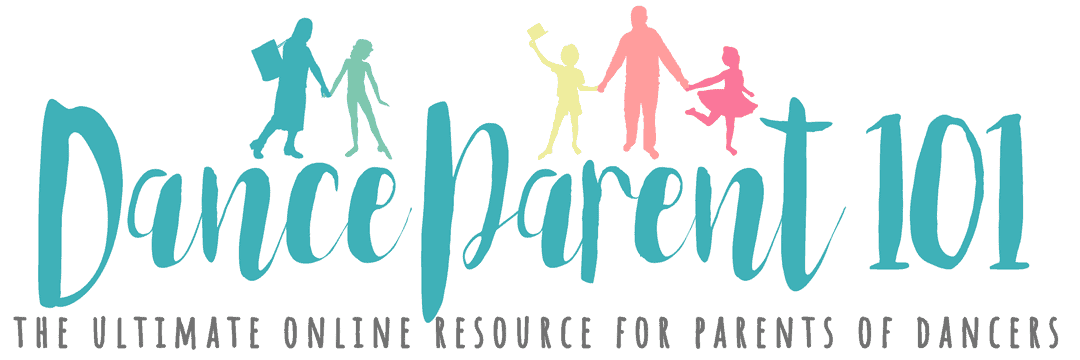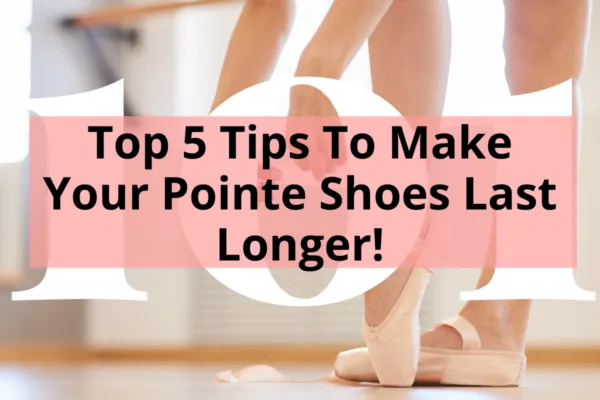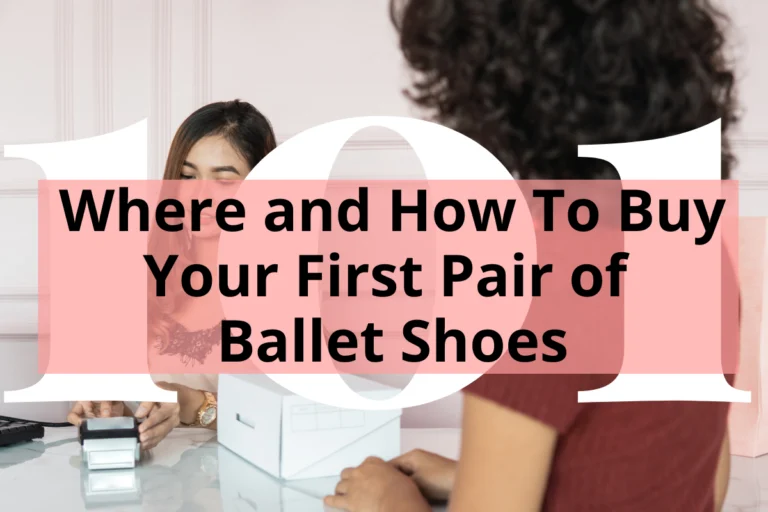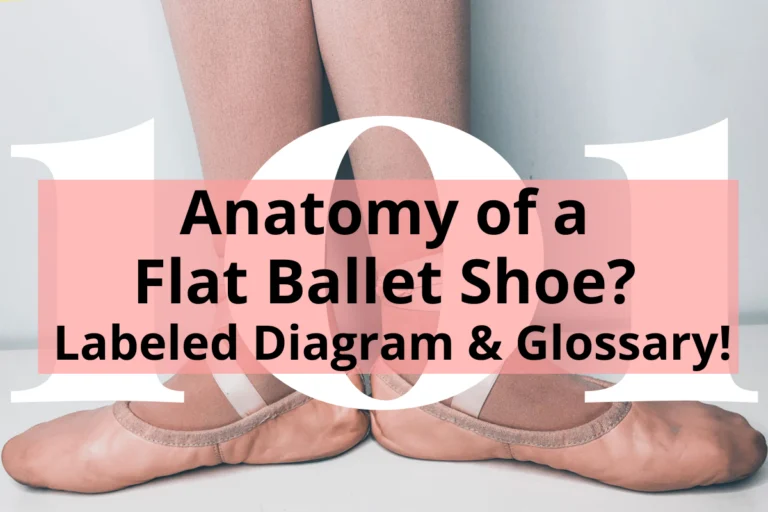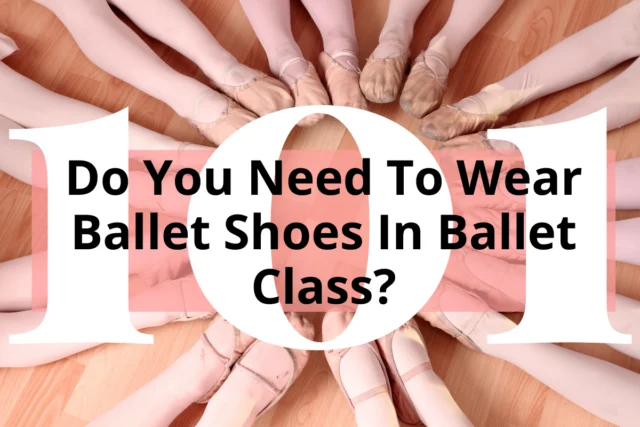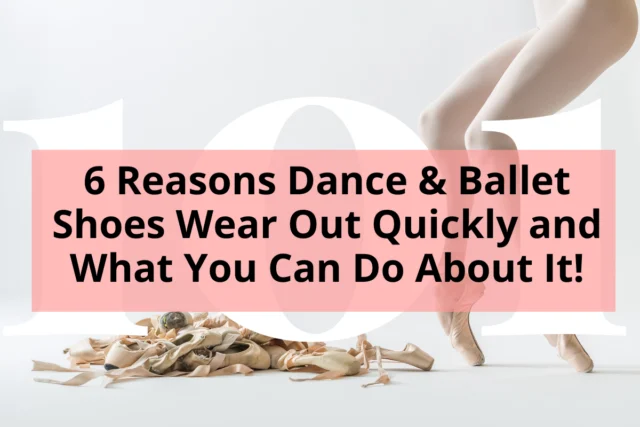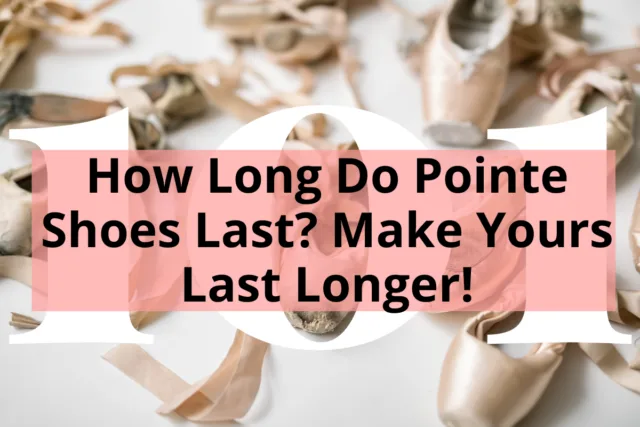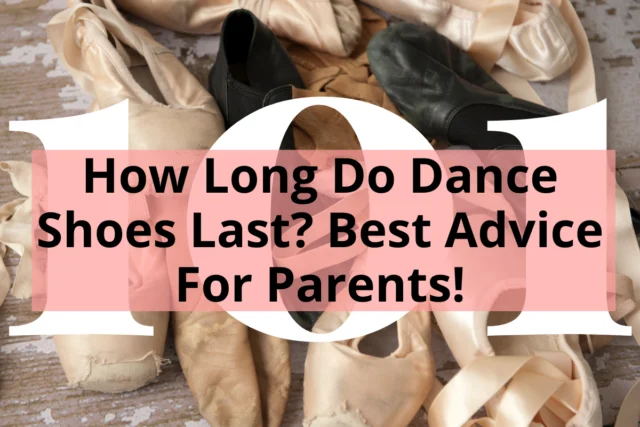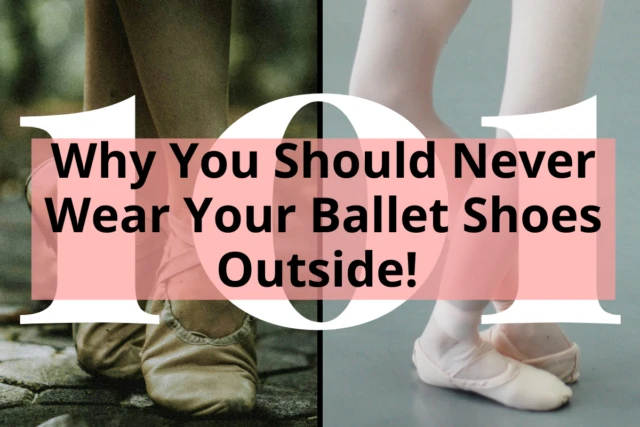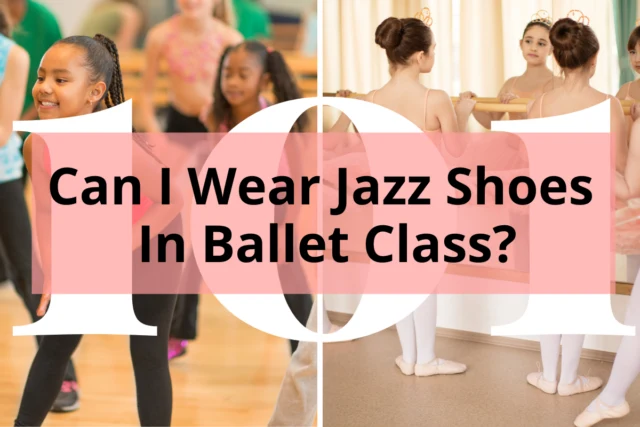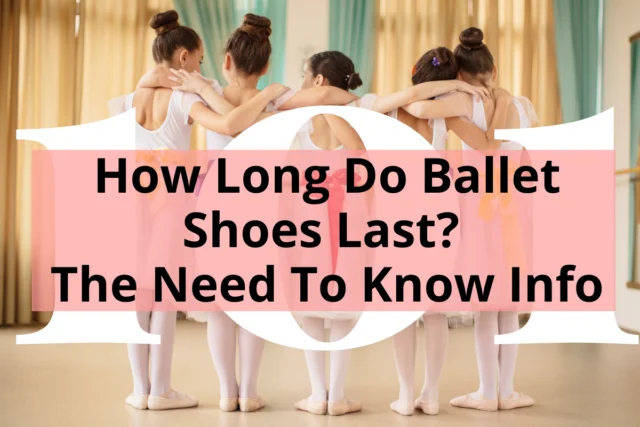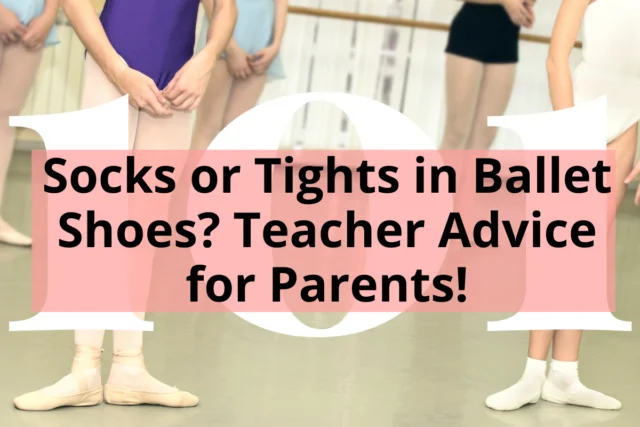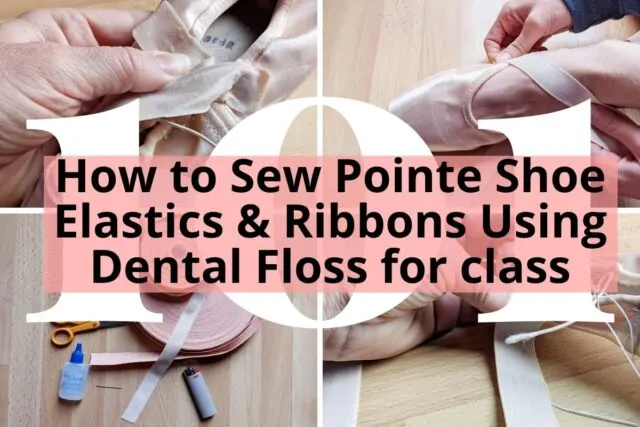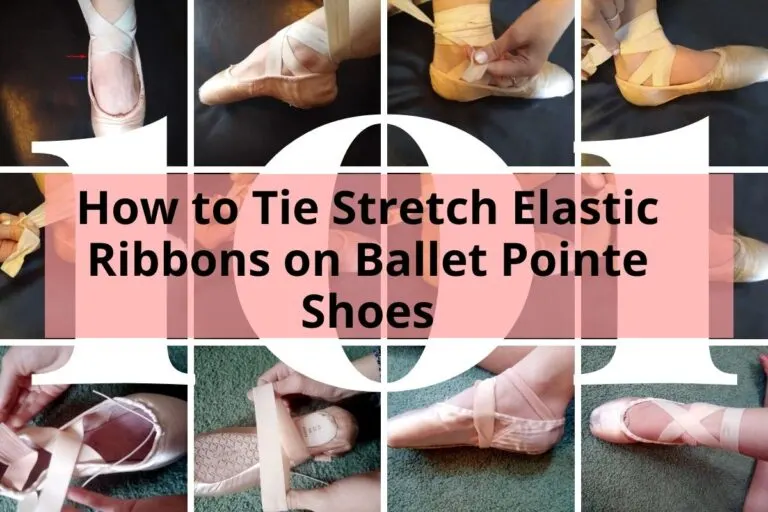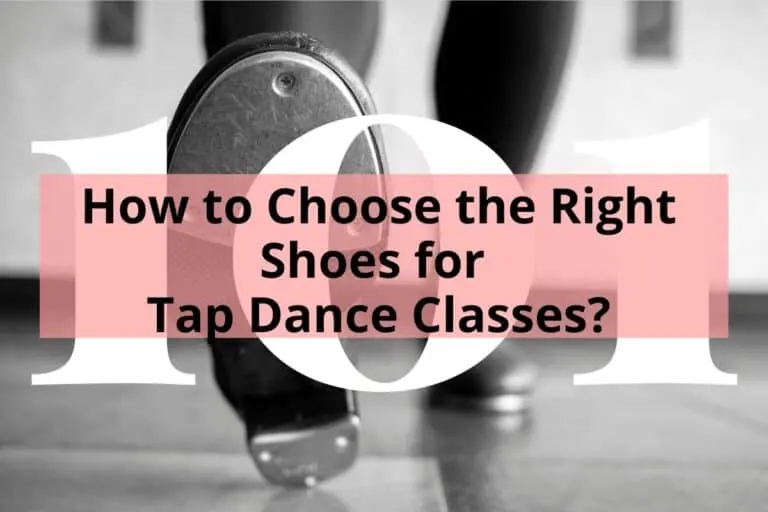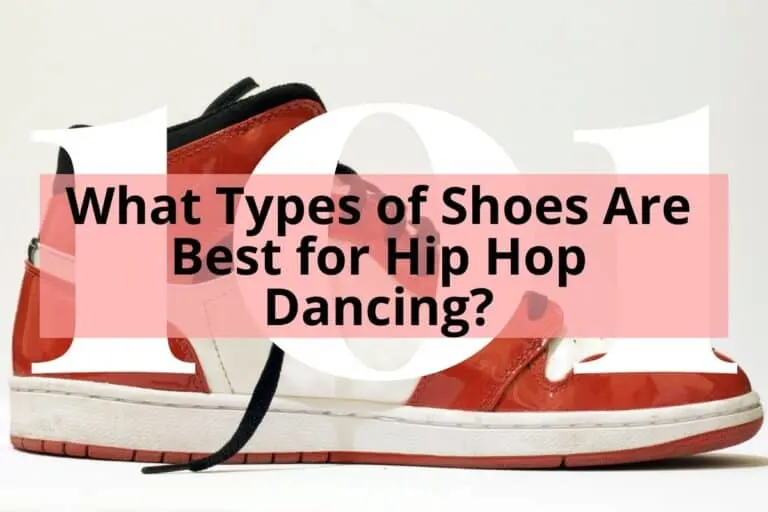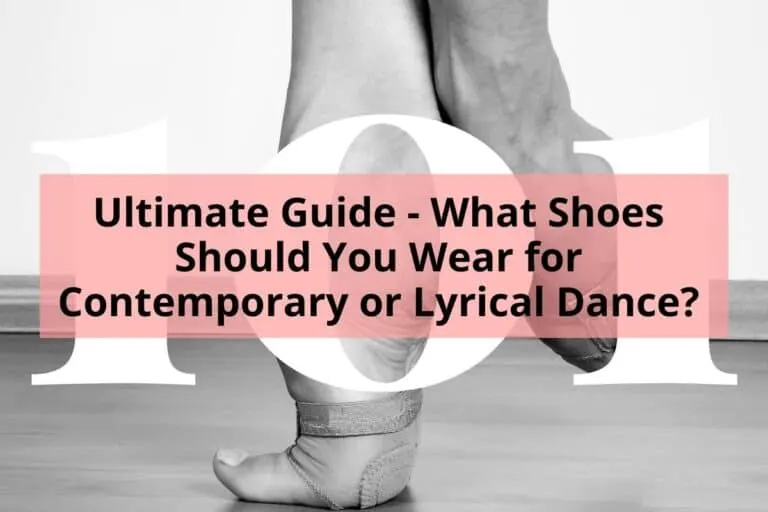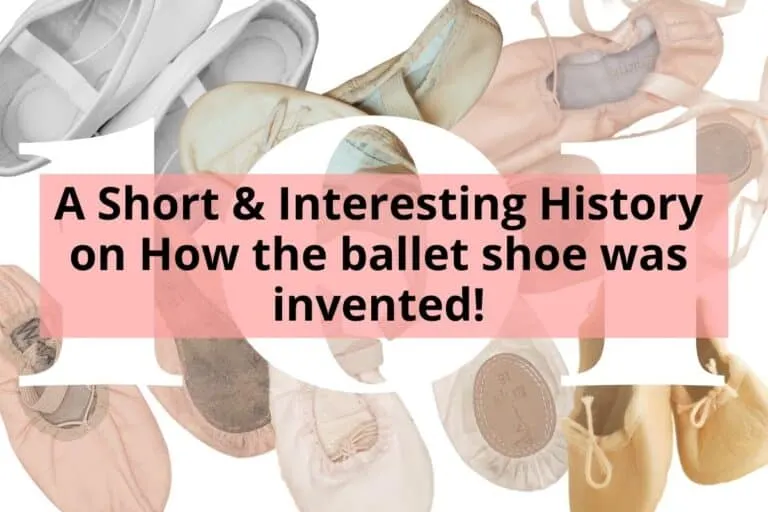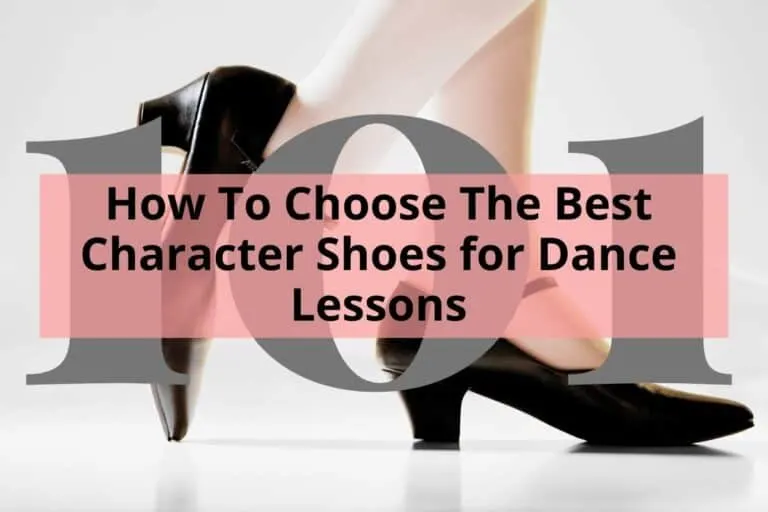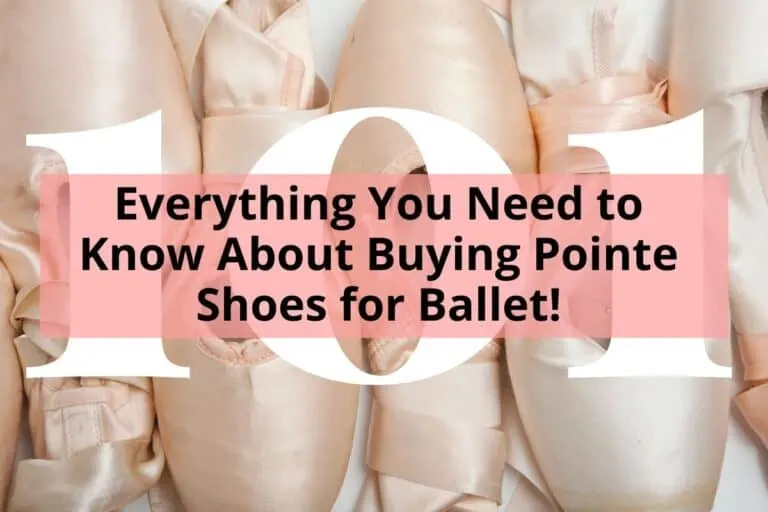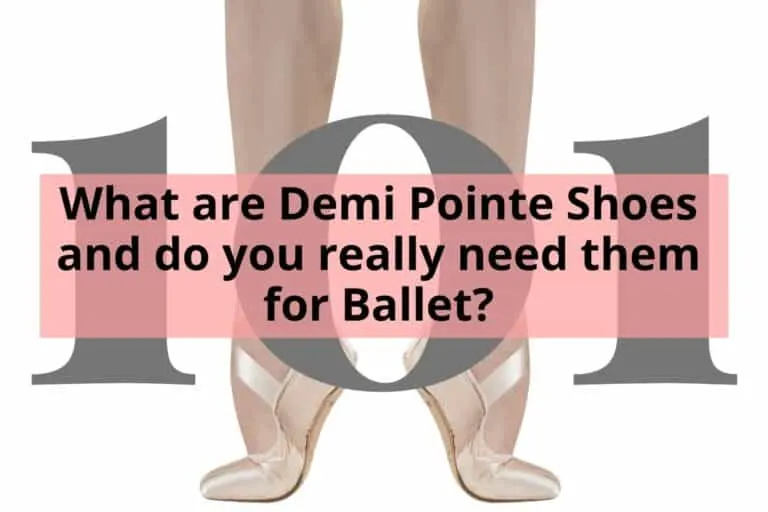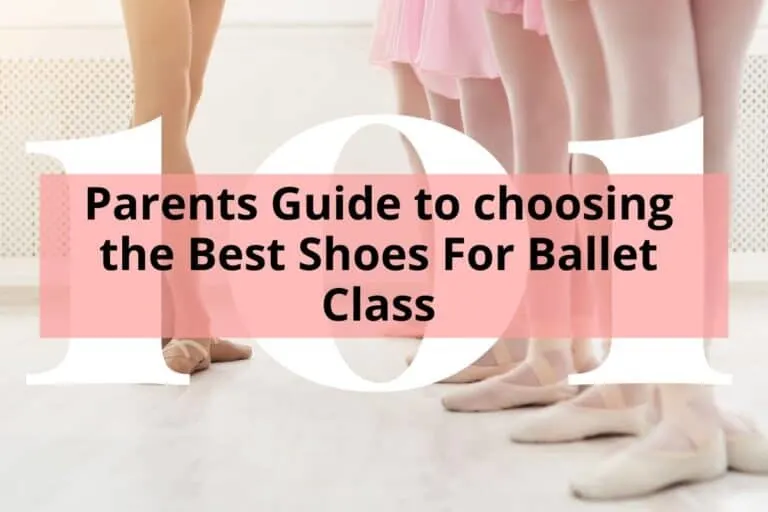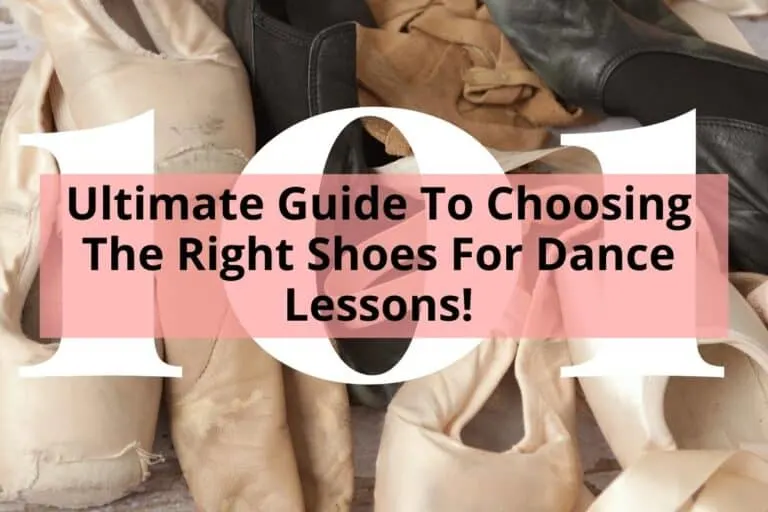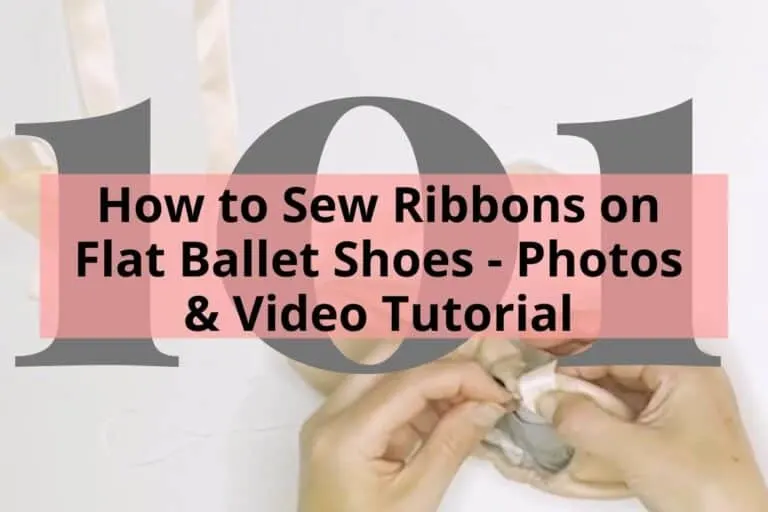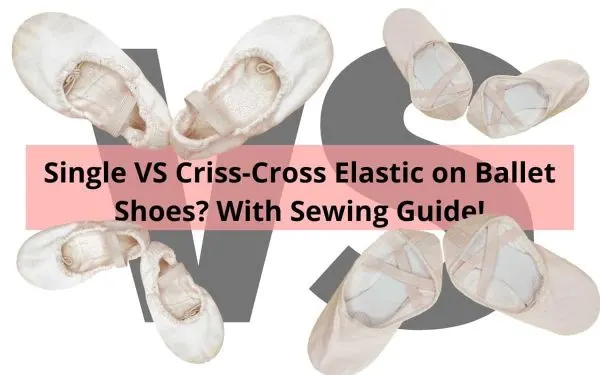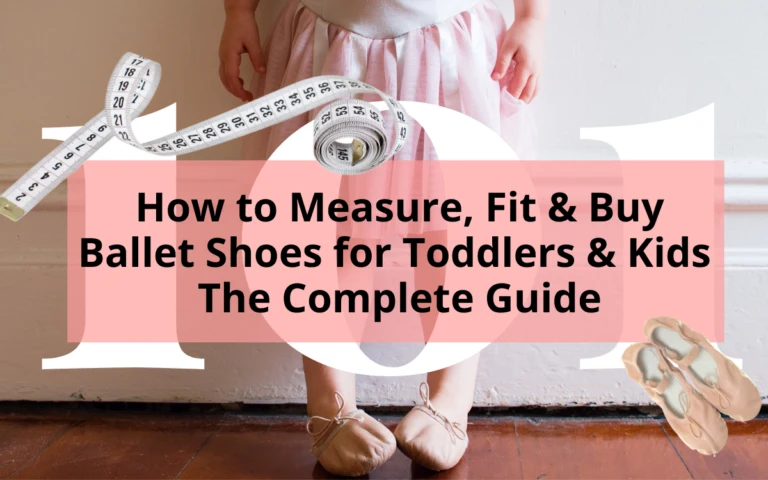By Lesley Mealor / Edited by Samantha Bellerose, B.Ed, Dip.Dance(Performing Arts)
In jazz class, dancers need a combination of flexibility and support from their shoes, as this style of dance requires a variety of movements from the feet. Jazz shoes come in a few different colors, and in several styles, all of which will be broken down for you here so you can make an educated decision on which jazz shoes to purchase for your dancer.
The best jazz shoes for dance class have a snug fit and are well made. They come in various colors, materials such as leather or canvas, can be slip on or lace up and either full or split- sole.
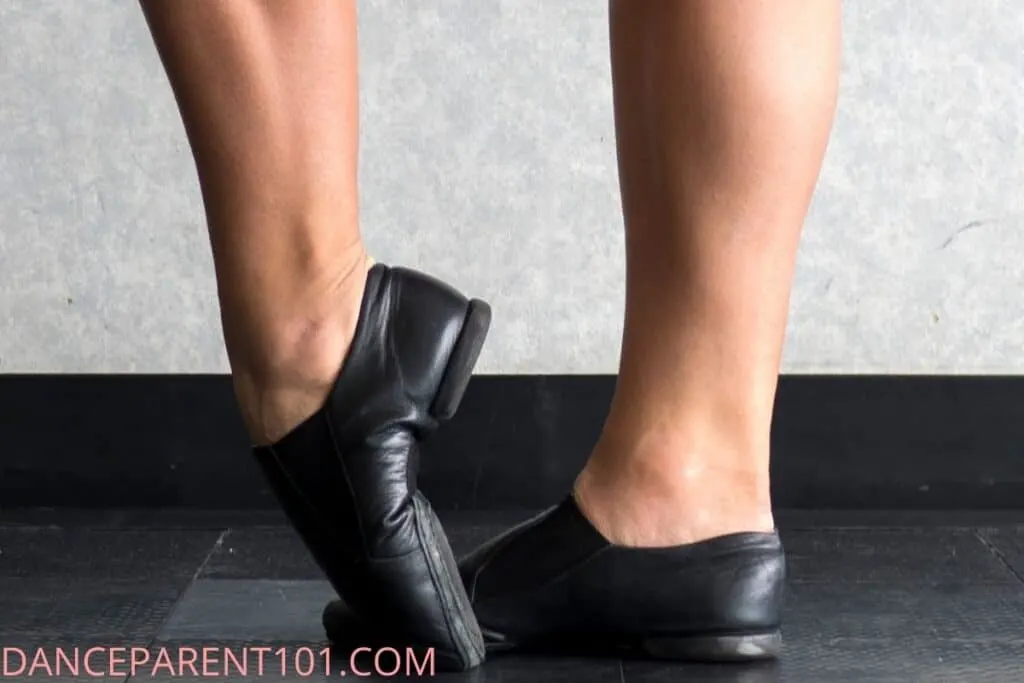
While you should always check with your studio to find out their shoe requirements, they may only give you the bare minimum of information. With so many shoes on the market, choosing the correct pair of jazz shoes for your dancer may seem overwhelming, but with the information in this guide, you will be ready to find the perfect pair!
- What Colors Do Jazz Shoes Come In?
- What Materials Do Jazz Shoes Come In?
- Should I Buy Lace Up or Slip-On Jazz Shoes?
- Should I Buy Split-Sole or Full-Sole Jazz Shoes?
- What Are The Best Jazz Shoes For Beginners?
- How Do I Know If Jazz Shoes Fit?
- Do I Have To Buy Jazz Shoes For Jazz Class?
- What do I wear for a commercial jazz dance class?
- Ready to buy your shoes?
What Colors Do Jazz Shoes Come In?
Jazz shoes are typically black or beige in color, although white jazz shoes still exist. White jazz shoes were very popular in the 70s and 80s, and are still made today so that they can be easily painted to match a costume. Most often, dancers will be asked to have black or beige jazz shoes.
Some companies have started making jazz shoes in other flesh tones to better serve our diverse population. Blendz Dance Apparel makes a wide range of flesh toned jazz shoes for this purpose.
What Materials Do Jazz Shoes Come In?
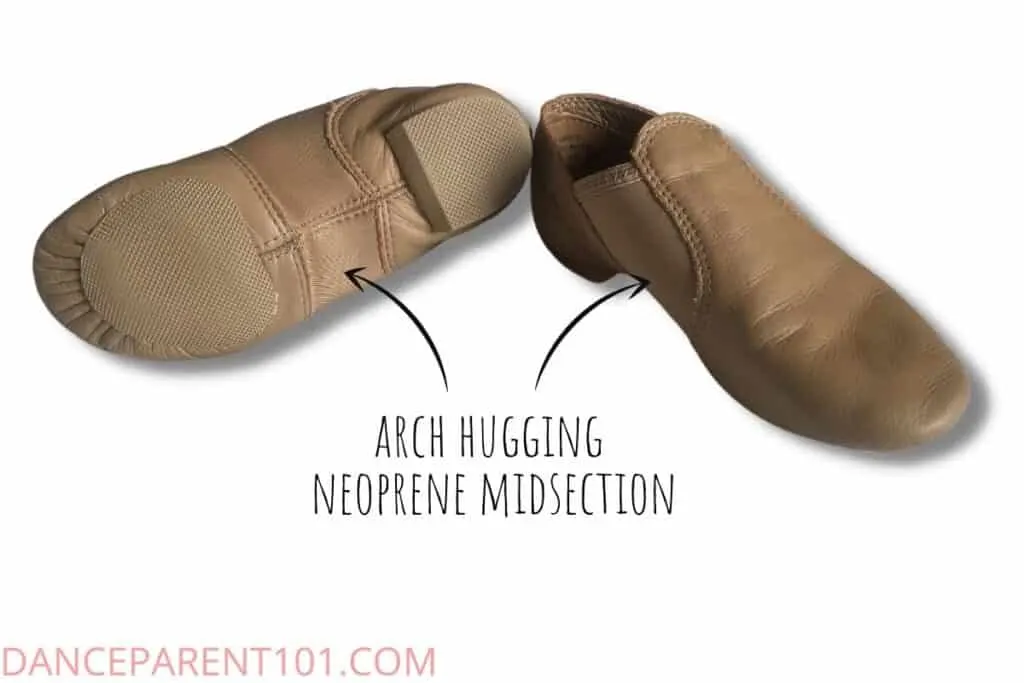
Jazz shoes are made of leather or canvas, sometimes with a neoprene or stretch insert at the arch, with a rubber sole and a small rubber heel for traction. Some companies offer a fully vegan jazz shoe, which include a canvas upper and a cellulose sole.
If a vegan shoe is of interest, be sure to check with the company for a detailed description of the materials – some canvas shoes still include a leather or suede sole.
Should I Buy Lace Up or Slip-On Jazz Shoes?
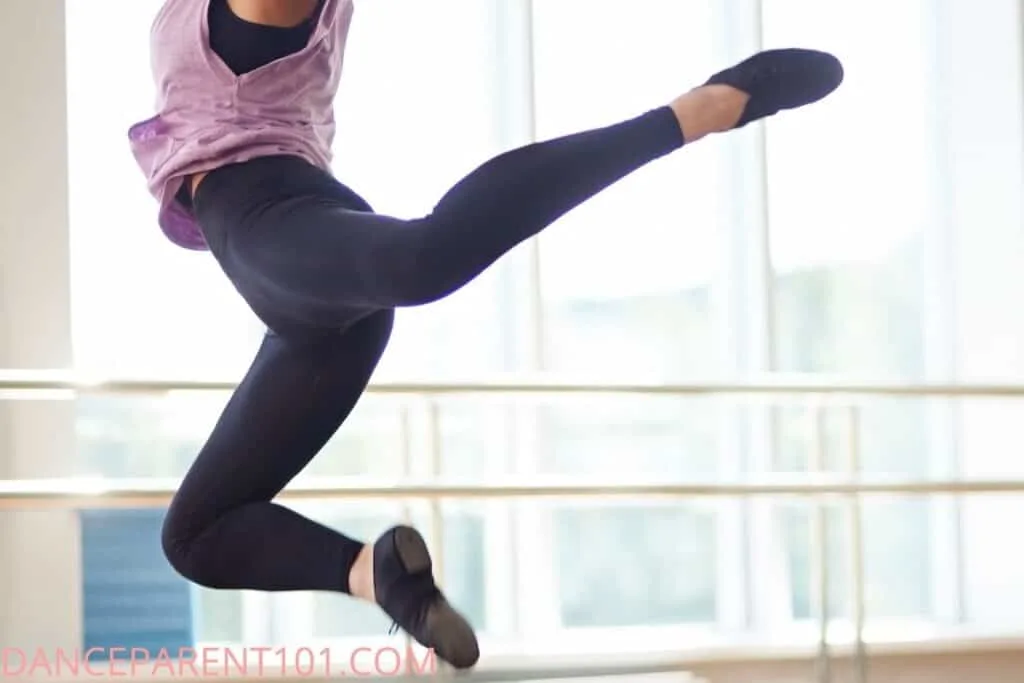
If your dancer has a narrow foot, a slip-on shoe with a neoprene insert might be a good choice, as the neoprene provides a snugger fit. If your dancer has a wider foot, a lace up shoe would be helpful so that the laces can be loosened as needed.
However, slip on jazz shoes are more popular not only because of the lovely line they provide but also because laces being bulky can hurt the top of a dancer’s foot during floor work (for example rolling over or sitting with knees bended on the feet) and many brands offer a medium and wide width to accommodate different types of feet.
*TOP TIP FOR LACE UP SHOES
If you have no other option than to buy lace up jazz shoes you can replace the laces with elastics that you sew together so they slip on to eliminate the bulk of shoe laces and the tie up knot.
Should I Buy Split-Sole or Full-Sole Jazz Shoes?
In today’s jazz dance world, most dancers wear a split-sole jazz shoe. They were made as dancers desired their shoes to give them more flexibility through the arch, which in turn accentuates a dancer’s point. Additionally, slip-on jazz shoes only come in split-sole, which is why you might say they are more prevalent – but it is also basically because they look better on the foot when dancing!
Full-sole jazz shoes are only made in the lace up style, and provide a bit more arch support than split-sole shoes. Full sole shoes are still made as some dancers do need this extra support, however some manufacturers are adding in neoprene to their split sole shoes at the arch to address this issue, although this extra tightness around the arch does not suit all dancers hence why full sole are still made.
*PARENT TIP
If you are at the dance store and ask for the cheapest jazz shoe option you will most probably be shown a pair of full sole lace-ups! But your dancer will thank you for spending a little extra if you can afford it on the split sole shoes (unless they need orthotics or the extra support).
What Are The Best Jazz Shoes For Beginners?
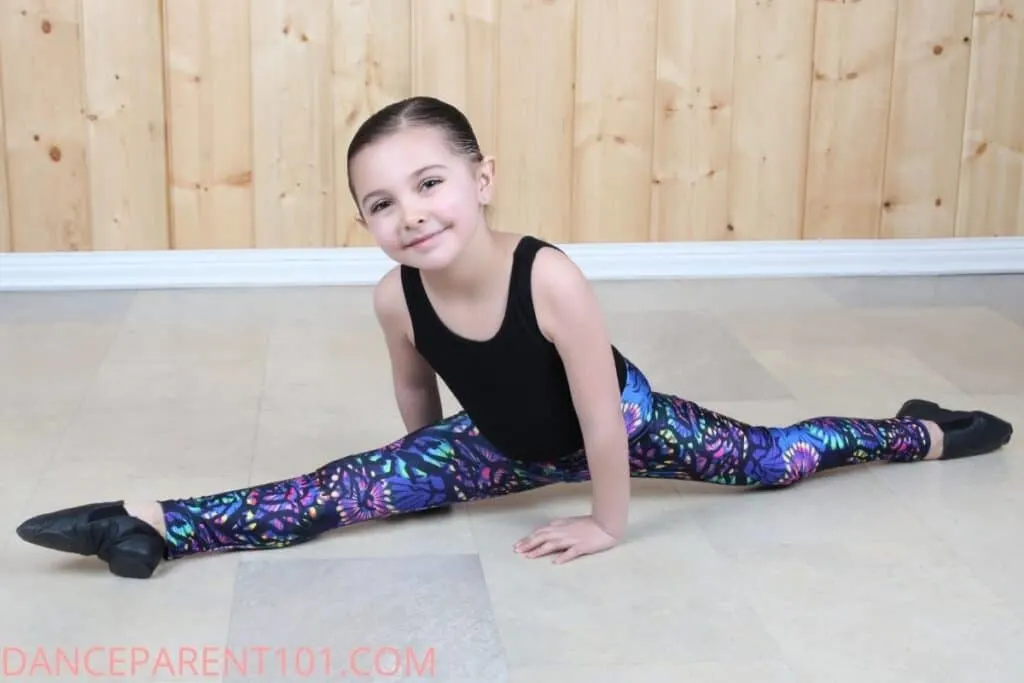
The best jazz shoes for beginners are split-sole, slip on shoes with neoprene inserts around the arch such as these from bloch. The neoprene hugs the foot, ensuring the shoe stays on while dancing, while also stretching when the shoes are put on. Children are usually expected to put on their own shoes in between classes, so a slip-on shoe with some stretch is much easier for little hands to handle as opposed to a lace up shoe.
For some young children the neo-prene arch may feel too tight and uncomfortable and if this is the case try these jazz shoes from bloch as they offer leather with elastic on the sides of the foot which will not hug the feet as tightly.
How Do I Know If Jazz Shoes Fit?
Similarly to ballet shoes, jazz shoes must fit properly in order for them to function properly. A snug fit is important. In order to get the most wear out of jazz shoes, you may choose to have your dancer wear a thin sock when they initially try them on. That way, if their feet grow, they will have slightly stretched the shoes out by wearing a sock and you may get a few more months out of them!
Jazz shoes that fit properly allow all ten toes to rest comfortably flat on the floor. The toes will be squeezed together a bit due to the shape of the shoe, but as long as the toes do not curl or crunch up in the shoe, or overlap, the shoe fits well.
As with ballet shoes, jazz shoes are sized differently than street shoes, and you will often have to go up several sizes to find your correct jazz shoe size. Double check the size charts online to be sure you find the correct size for your dancer as each brand is different!
Do I Have To Buy Jazz Shoes For Jazz Class?
Most of the time, yes, you should buy jazz shoes for jazz class. Oftentimes, a jazz class will warm up barefoot and transition into jazz shoes for the rest of class, and will likely need jazz shoes for performances. Check with your studio for their requirements.
What do I wear for a commercial jazz dance class?
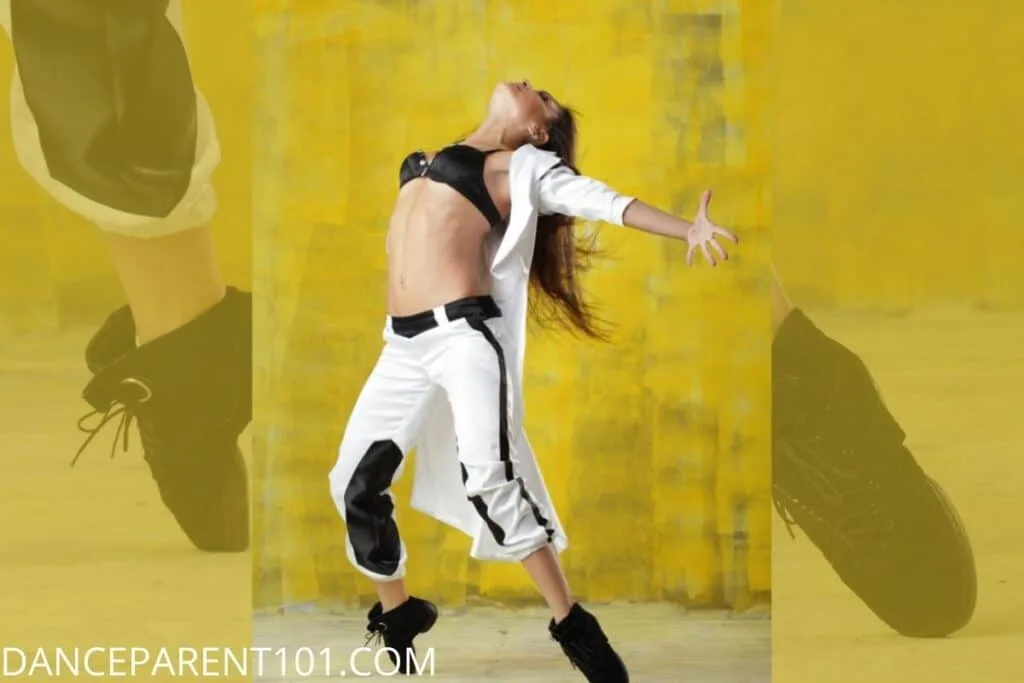
For a commercial jazz dance class you might like to wear jazz sneakers like these ones from Bloch instead of jazz shoes to give you a street feel when you are dancing, but with the ability to obtain nice lines and an accentuated pointe, as jazz sneakers are generally split sole shoes. Jazz sneakers are heavier than jazz shoes and not recommended for technique jazz classes although you might see professional dancers or even dance teachers wear them in jazz class, because they have already spent years wearing jazz shoes and have generally perfected their technique.
Ready to buy your shoes?
Remember to allow your dancer to wear the shoes around the house before going to class to break them in and get comfortable with the tight fit. Jazz shoes range in price from $25 USD to $60 USD. Hopefully now when you visit your local dancewear store, or look online for jazz shoes, you will feel more confident in making your decision about the best jazz shoes for your dancer.
If you would like to read more articles about dance shoes we have a whole selection of them for your to go through here below on the Dance Parent 101 Website!
